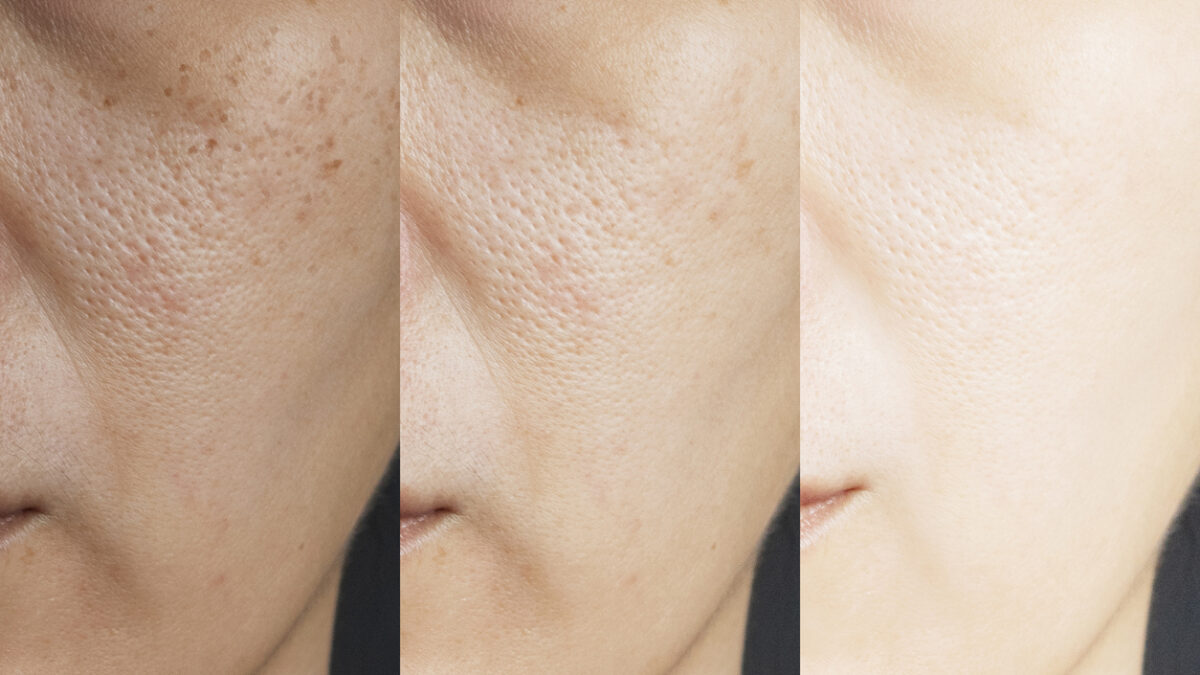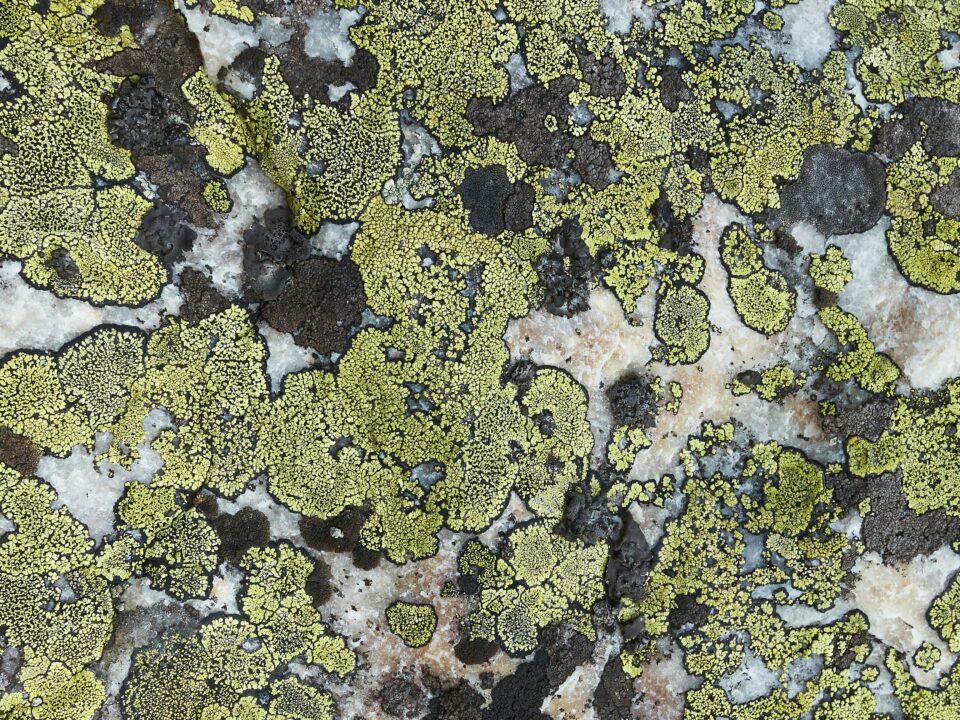
three pictures compared effect Before and After treatment. skin with problems of freckles , pore , dull skin and wrinkles before and after treatment to solve skin problem for better skin result
Melasma is a chronic skin condition which refers to blotchy, and brownish facial pigmentation. It affects more women than men (only 1 in 4 affected individuals are male patients). On average, this condition appears in individuals between 20 to 40 years old. Patients with naturally brown skin and those who tan well are in the greater risk in comparison with individuals who have either fair or black skin.
Usually, melasma occurs in mature, healthy, non-pregnant individuals. The causes of melasma appear quite complex since multiple factors are involved. The pigmentation is caused by the overproduction of melanin by melanocytes (pigment cells). There is also a genetic predisposition to melasma (1/3 of patients report having a family history of melasma). Sun exposure and sun damage, pregnancy, hormonal treatments (i.e. oral contraceptive pills, hormone replacement, intrauterine devices), hypothyroidism (low levels of the circulating thyroid hormone), certain products (i.e. cosmetics, scented or deodorant soaps) and medications are all agents that can possibly trigger the occurrence of melasma.
Melasma appears in freckle-like spots (macules) and large brown patches on face. These features occur on both sides of the face and spots have an irregular border. The following facial parts like forehead, cheeks, nose, and upper lips have centrofacial or malar patterns. The jawline has a mandibular pattern.
The diagnosis of melasma is relatively easy in comparison with other skin conditions. A skin biopsy may be performed in order to confirm or determine melasma condition. Sometimes, melasma can be mistaken for the postinflammatory pigmentation or drug-induced pigmentation. Also, certain inflammatory skin conditions such as lichen planus pigmentosus may mimic melasma. That is why biopsy may be required.
Treatment of melasma is quite slow due to the complexity of the condition. Patients with sensitive skin report having irritant contact dermatitis which can progress into the post-inflammatory pigmentation. The general measures recommended in case of the melasma diagnosis are year-round lifelong protection from the sun, daily application of highly protective formula sunscreen (SPF 50+ and preferable with a physical blocker), usage of mild cleanser, and light moisturizer. Moreover, any intake of hormonal contraception may aggravate the skin condition. It is highly advised to see a dermatologist in order to start the treatment as soon as possible.
Topical therapies are quite common because these medications help to prevent any new pigmentation formation by inhibiting the formation of melanin. The common treatment options include topical preparation of Arbutin, Kojic Acid, Hydroquinone, topical retinoids, Ascorbic acid (Vitamin C), Azelaic acid that can be used as a combination or standalone treatment.
Very often the topical treatment is not sufficient to control melasma and in this situation the other treatment options are added to the treatment program.
For instance, chemical resurfacing of the skin after the pretreatment with the mentioned above topical agents for at least 4 wks.
Also, certain oral medications such as Tranexamic Acid in low doses are used for resistant cases of melasma.
Melasma can also be treated with various medical devices, like lasers and intense pulsed light (IPL). Ideally, the pigment that triggers melasma needs to be destroyed without affecting other cells. However, it is very hard to achieve such an outcome even with present-day advancing techniques. Usually, machines remove the epidermal pigmentation. Prior to the procedure, patients are treated with tyrosinase inhibitor.




20 Comments
Looking forward to reading more. Great blog post. Really thank you! Keep writing.
Excellent post! Very educational 🙂
This is very interesting, You are a very skilled blogger. I am looking forward to seeking more of your magnificent post. Also, I ave shared your site in my social networks!
I read some of you post as I thought they were very very beneficial.
Very informative post!
Hey There. This is an extremely well written article.
Major thanks for the blog article. Thanks Again. Really Cool.
Great post!
I’m thankful for the blog post. Really looking forward to read more. Really Great.
These are actually great ideas you pointed out in this post!
My partner and I stumbled over here by a different page and thought I may as well check things out. I like what I see so I am just following you. Look forward to going over your web page repeatedly.
Thanks so much for the article post. Fantastic.
I’m extremely impressed with your writing skills as well as with the layout on your weblog. Is this a paid theme or did you customize it yourself?
Anyway keep up the nice quality writing, it’s rare to see a great blog like this one these days.
Can’t wait to read all your posts!
Wonderful blog!
This post is genuinely a good one it helps new internet viewers, who are wishing in favor of blogging.
There’s definitely a lot to find out about this subject.
I like all the points you have made.
You ought to take part in a contest for one of the greatest
blogs online. I will highly recommend this blog!
I was suggested this blog by my cousin.
You are amazing! Thanks!
I am so grateful for your blog.Really thank you! Really Great.